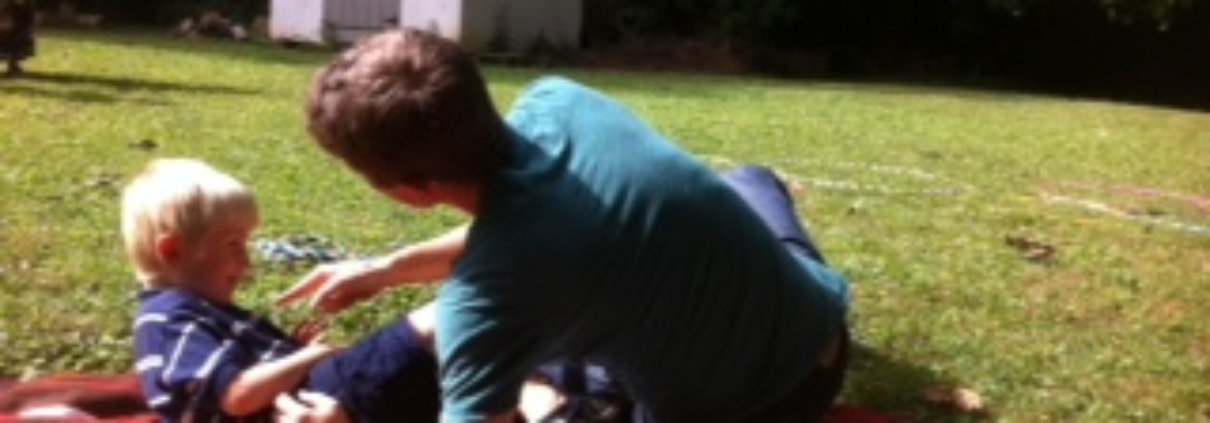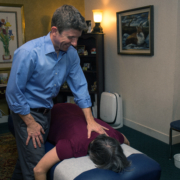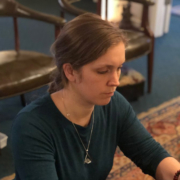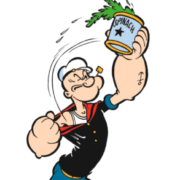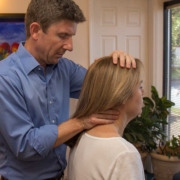Why Fathers Should Roughhouse
“Mothers stroke and Fathers poke.” T. Berry Brazelton MD
A father’s roughhousing play can have interrelated benefits for a child’s body, brain, emotions and social life. The first sensation a baby develops in womb is the sense of body position. It’s called proprioception, and as long as you’re not off in space somewhere, gravity is reminding your brain which end should go up and which should go down. When a father chases, tags, wrestles, grapples, picks up, slings around, tosses and catches his child it provides a robust input to that child’s brain. This strengthens the brain body connection while also calibrating and training body control.
When the father and child find their border between what’s exciting and fun and what’s scary or painful the aware father backs off. The father demonstrating an emotional attunement and sensitivity to his child will build a bond and trust. You can think of the attention of a parent as an essential nutrient to a developing child. Because it is.
The father’s attunement and sensitivity is also training for the child. The child learns respect for rules of engagement through what hurts and how to avoid it – a flying double knee bash into dads stomach, or an errand elbow to dads groin – can abruptly end the fun. When bumps or hard knocks go the other way and the child’s hurt or scared, a father can demonstrate how to make amends and reconnect.
Play is natural practice for a child to read their father, not just during teaching or discipline. A young child will have opportunities to read a woman’s emotional state, in the frequent interactions with mother. And fatherly play will expand a child’s range to interpret the emotional states of men as well.
As a baby develops, they must take on new physical challenges daily. When a toddler climbs down from the couch it can be different each time. Wearing a diaper or not, whether its clean or not, shoes on or not, wearing pants, short or nothing, all change that child’s experience with that obstacle. Add the constant change of a young child’s growing body and it further changes that child’s daily experience with the same obstacle. Fundamentally this grows the child’s skill on learning how to problem solve, and actually learning how to learn. What better challenge is there than an emotionally attuned, safe, loving, adventurous, strong and interactive obstacle than roughhousing with Dad?
The tips to do this well is keep it fun for both. Everyone has their limits, father and child, and stay aware of both. Notice when you or your kid is not having fun anymore, change the game or stop. Tickling can border on torture, so when your kid says stop, stop. They might say go again soon enough. When I was little I never liked being tickled, it was tortuous. But my kids enjoy it in doses. Remember the style and intensity you liked to play might be different than what your kid enjoys, notice that and don’t argue with reality. Don’t allow a child’s head to whip back and forth, or side to side. That’s whiplash and is physically harmful to the brain and spinal cord. When spinning a child around in a circle it can create a lot of centripetal force. If you hold a child by the wrists the pulling force at the elbow or shoulder could become damaging. You can avoid that if you wrap your arms around their chest, under their arms and let them face away from you. Don’t relay on baby carriers, seats or swings so much, hold your babies more or set them on the floor when possible. The body on body contact or wiggling on the floor are both beneficial for development. Spending time in seats, upright play pins and swings are not.
As for Dad, most of the above benefits apply to him too. Playful movement is good for a man at any age, not just for the fitness, but also the proprioceptive, brain-body benefits. The emotional connection with your children is a wellbeing goldmine. The wives of men who are emotionally engaged and playful with their children are more satisfied with their marriage. And at the end of life, when a man regrets working too much in exchange for time lost with family, it’s precisely the laughter and play we’d miss the most. Now go love your family, and make sure they know it.
Aaron Rossi DC is a family chiropractor, fellow of the International Chiropractors Pediatric Association, husband and father of four children. The Information above is based on experience and research, and draws heavily from the work of:
Karen E Adolph research on learning, development and infant locomotion. Bessel A Van der Kolk and his book “The Body Keeps the Score: Brain, Mind, and Body in the Healing of Trauma.” And John Gottman and his recent book “The Man’s Guide to Women: Scientifically Proven Secrets from the “Love Lab” About What Women Really Want .”

